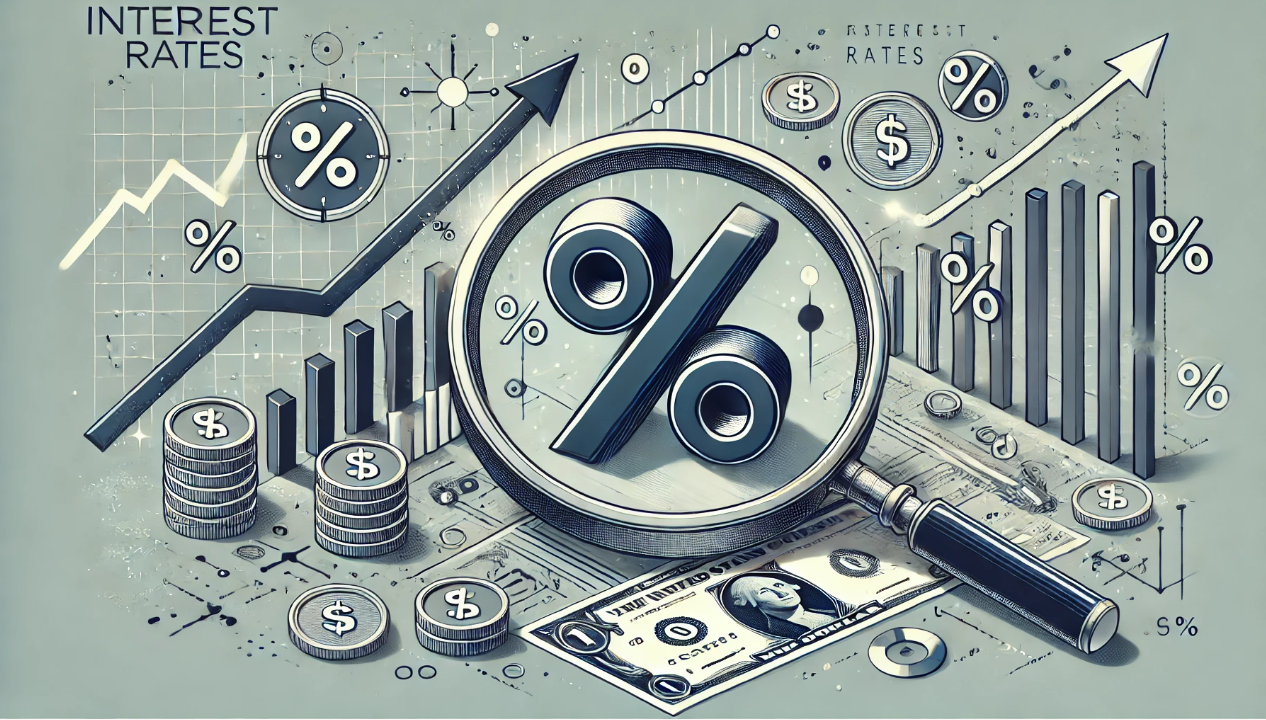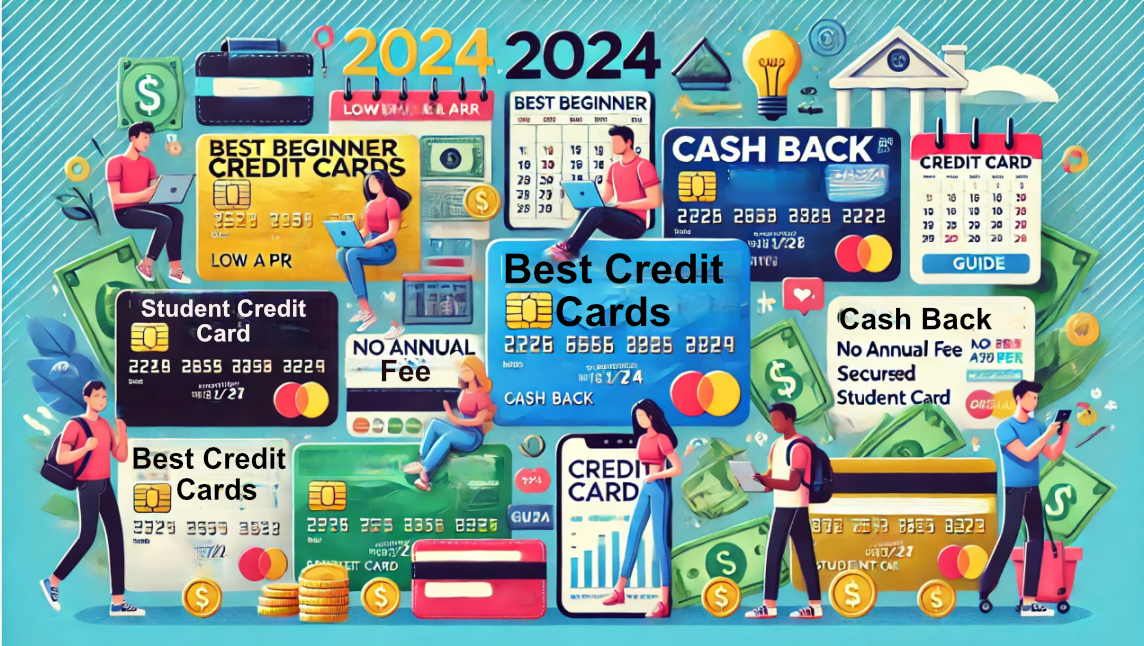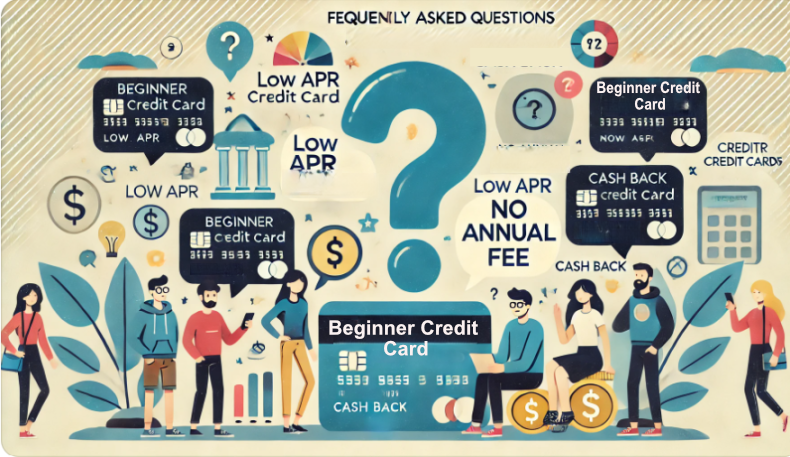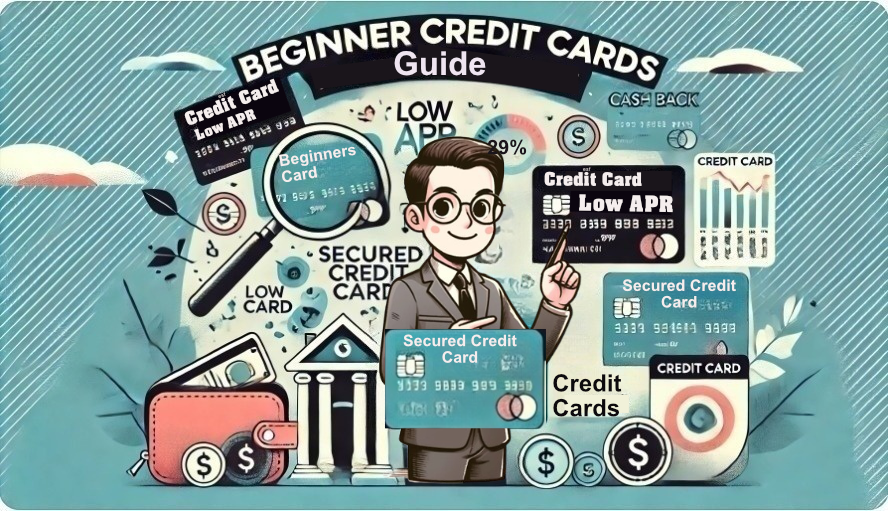Beginner Credit Cards: A Comprehensive Guide
The majority of the links on our website are affiliate links. This means that if you click on the link and make a purchase, we earn a small commission at no additional cost to you.
Introduction
Beginner credit cards are specifically designed for individuals new to credit, those looking to establish or rebuild their credit. These cards are ideal for young adults, students, or anyone with a limited credit history. Generally, they are meant to be steppingstones to traditional credit cards. They often have simple reward structures, low to no annual fees, and easier approval criteria compared to more advanced cards. The main benefits include credit-building opportunities, straightforward rewards, and minimal fees.
Key Features of Beginner Credit Cards
Rewards Program:
Many beginner credit cards offer basic rewards such as cashback on everyday purchases, typically ranging from 1% to 1.5% back. Some cards, like the Discover it Secured, offer specific rewards like 2% cashback at gas stations and restaurants on up to $1,000 in combined purchases each quarter. They are meant to encourage more spending. The more you spend the more cash back you receive. This is a recipe for disaster. Credit cards are not debit cards or personal loans. Whenever you make a purchase on your credit card you are essentially borrowing money from the creditor. If you have sugar at home, why would you go next door and borrow sugar?
Interest Rates:

Typical APRs for beginner cards can be higher, often ranging from 20% to 30%, due to the higher risk associated with less established credit profiles. Secured cards may have slightly lower rates but require a refundable deposit. We all know that the interest is how creditors and lenders make their money. It doesn’t mean that you have to pay interest. If you pay your balance off every due date, it will not matter what the interest rates are. Because there will be nothing to apply it to. Let others pay interest to the creditors. That is how you use credit cards, paying the balance off every month. Paying anything other than the full balance amount translates to you going over your budget. Spending more than you can afford. Your credit score is docked points, and it doesn’t demonstrate responsible credit card usage.
Annual Fees:
Most beginner cards come with no annual fee or a modest fee. Capital One Platinum Secured Credit Card. No annual fee. Security deposit is required. If you do research, you will be able to find a beginner’s card with no annual fee or monthly fees.
Credit Requirements:
These cards are accessible to those with fair credit (580-669) or even limited to no credit history. Secured cards, like the Discover it Secured, don’t require a credit score, making them accessible to those new to credit.
Additional Perks:
Benefits can include fraud protection, credit monitoring tools, and access to credit score tracking. Some cards also offer additional perks like rental car insurance or discounts on certain purchases.
Pros and Cons of Beginner Credit Cards
Pros:
- Easier Approval: Many cards are designed for those with limited or fair credit, making them easier to obtain.
- Credit Building: These cards report to major credit bureaus, helping users build their credit history with responsible use.
Cons:
- High APR: Interest rates can be higher compared to other credit card types, making it costly to carry a balance.
- Limited Rewards: Rewards programs may be less robust, with fewer categories and lower cashback rates.
Best Beginner Credit Cards in 2024

1. Capital One Platinum Secured Credit Card
- Annual Fee: $0
- Rewards: No rewards
- Introductory Offer: None.
- Ideal For: Those who are new to credit or trying to establish credit.
2. Discover it Secured Credit Card
- Annual Fee: $0
- Rewards: 2% cashback at gas stations and restaurants (up to $1,000 per quarter), 1% on all other purchases.
- Introductory Offer: Automatic reviews starting at seven months to transition to an unsecured card.
- Ideal For: Individuals looking to build or rebuild their credit with a secured card.
3. Capital One SavorOne Cash Rewards Credit Card
- Annual Fee: $0
- Rewards: Cash back rewards structure, 8% on purchases through the Capital One Entertainment platform. 5% on hotels and rental cars booked through Capital One Travel. 3% on dining, entertainment, streaming services, and grocery store purchases. 1% on all other purchases.
- Introductory Offer: 0% Introductory APR on Purchases and Transfers for first 15 months.
- Ideal For: Those who are new to credit, Consumers Who Can Pay Off Balances Monthly.
How to Choose the Best Beginner Credit Card
- Consider Your Needs: Identify if you need a card primarily for building credit or earning rewards.
- Compare Rewards: Look for cards that offer rewards aligned with your spending habits.
- Check the Fees: Be mindful of annual fees and any other associated costs.
- Understand the APR: If you plan to carry a balance, prioritize a card with a lower interest rate. Remember this, credit cards are the riskier of credit types. The interest rates are always high in general because of the riskiness. With beginner credit cards, most issuers have shifted to variable APR rates tied to the Prime Rate.
Tips for Maximizing Your Beginner Credit Card
- Pay in Full Each Month: Avoid high-interest charges by paying your balance in full each billing cycle.
- Use the Card Regularly: To keep your card active, use your credit card at least twice every 3 months. It does not matter if you use your card 20 times in a month or if you use it once in a month in terms of your credit rating or credit score. The only thing that matters if you pay the balance each month, on time.
- Monitor Your Credit Score: You do not need a credit monitoring service and free credit scores. You will do just fine with your free annual credit reports. Review them and make sure that everything looks correct. If not, you will have you information straight from the credit bureaus so you can begin the process of correcting the mistakes. You do not recieve credit scores with your free annual credit reports. Which is perfectly fine because credit scores are dynamic. They change so frequently, and they are not saved. If your credit provider offers tools to track your progress in establishing, improving, or rebuilding credit. Or if you do use a credit monitoring service like Credit Karma, use it as a gauge to measure your progress.
Frequently Asked Questions about Beginner Credit Cards

Question 1: Do beginner credit cards improve my credit score?
Answer: They potentially can, but because of the many factors that influence credit scores, the impact will not be the same for everyone. And beginner credit cards are designed to establish credit rather than boost credit scores. You will see and hear it all the time; paying your balance in full and on time every month is going to build a strong credit file. Your report is comprised of what is in your credit file. A credit score is the direct result of a credit report. It takes time to build a strong credit file. But one late payment is going break a credit file instantly. Any negative event will overshadow any positives in your credit file.
Question 2: Do I need a credit score to apply for a beginner card?
Answer: Many beginner or starter credit cards are specifically designed for people with no credit history or credit score. These cards can help you start building credit from scratch. Some cards, especially secured ones, don’t require an existing credit score. Instead, they require a security deposit, reducing the risk for the creditor. Making them accessible to complete beginners.
Question 3: Can I upgrade my beginner card later?
Answer: Most credit card issuers allow you to upgrade to a higher-tier card once you have established a good credit history with your current card. This often requires having the card for at least six months to a year.
Conclusion
Beginner credit cards are a great tool for establishing credit. By choosing the right card and using it responsibly, you can begin building credit and become eligible for the more desired and exclusive credit cards. What you are really doing is paving the way for a stronger financial future. Realize that rewards and bonuses are never in the best interest of the user. Read the stipulations for bonuses.
Here is an example, a $500 bonus requires the user to spend $1500 within the first three months. That may work if you already had a big purchase already planned. Usually, the big purchased is planned after. Or use it as an excuse to spend the $1500 to get $500 back. Cash back rewards cards require you to spend more to get some of your money back. Compare your options carefully and select the card that best fits your needs and credit profile.
